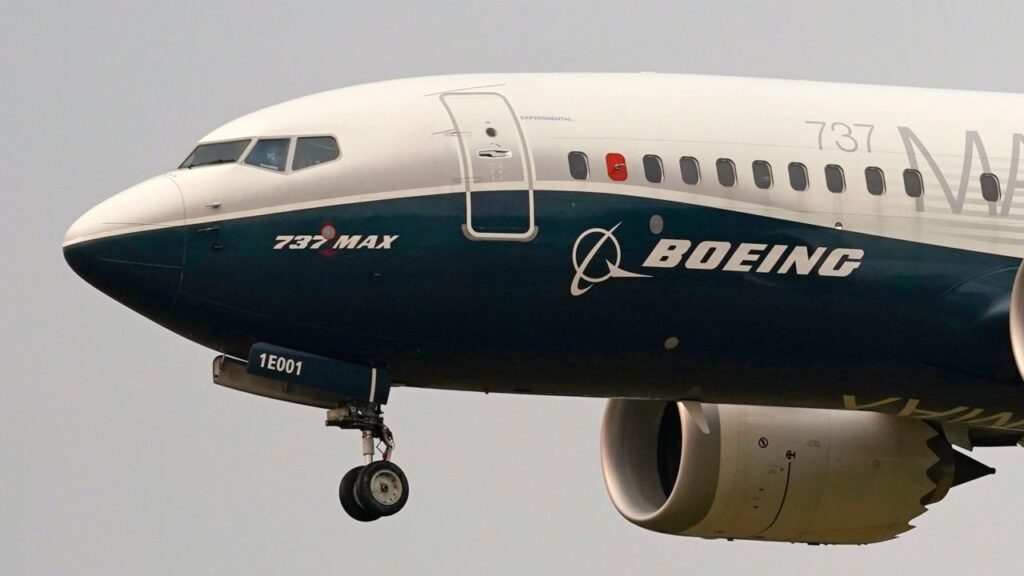Boeing Shares Drop as China Halts Aircraft Deliveries Escalating Trade War Tensions

Boeing, one of the world’s largest aircraft manufacturers, has been hit with a major setback as reports surfaced that China, a key market for the company, has halted the delivery of Boeing aircraft. This development comes amid heightened tensions between the United States and China, as part of an ongoing trade war that has disrupted trade relations and global supply chains. As a result, Boeing shares have taken a significant hit, underscoring the volatile intersection of geopolitics and the aerospace industry.
The Growing Rift: Trade War Intensifies
The simmering trade conflict between the U.S. and China has now entered a more precarious phase, with both countries imposing tariffs on a wide range of goods. The aerospace sector, including giants like Boeing and its European counterpart Airbus, has not been immune to the ripple effects of these policies. In a report published earlier this week, several sources close to the matter revealed that China, a major purchaser of Boeing aircraft, had effectively halted its deliveries of Boeing planes in response to the United States’ escalating trade policies.
This marks a significant escalation in the ongoing tensions between the two countries, particularly in the context of Boeing’s operations. As one of the largest exporters of U.S. goods, Boeing’s reliance on China for aircraft sales has made the company vulnerable to political fallout. For the Chinese government, halting Boeing deliveries is a symbolic and strategic move, meant to assert pressure on Washington and send a clear message about the economic repercussions of the trade war.
The Impact on Boeing’s Stock
Following the news of China’s decision to halt Boeing aircraft deliveries, the company’s stock suffered a notable decline. Shares of Boeing (BA) plunged by more than 6% in a single trading session, reflecting investor concern over the financial ramifications of this trade dispute. Analysts predict that the suspension of deliveries could cost Boeing billions of dollars, especially as Chinese airlines make up a significant portion of the company’s global sales.
Boeing’s stock price has been under pressure for some time, largely due to the fallout from the 737 MAX crisis, which saw the aircraft grounded for nearly two years following two fatal crashes. However, the latest blow to its relationship with China has added to the company’s woes, as it grapples with not only regulatory hurdles but now geopolitical tensions that could affect its bottom line.
The situation is compounded by the fact that China is one of the largest and fastest-growing aviation markets in the world. Over the last decade, Chinese airlines have been major buyers of Boeing’s commercial aircraft, including the popular 737 series. The halt in deliveries could further impact Boeing’s efforts to recover from the 737 MAX crisis and hurt its long-term growth prospects.
China’s Growing Aviation Ambitions
The trade war between the U.S. and China has had far-reaching consequences, including in the aviation industry. One of the underlying issues in this conflict is China’s desire to reduce its reliance on foreign aircraft manufacturers like Boeing and Airbus. Over the years, China has invested heavily in developing its own aviation industry, with the goal of producing domestically-made aircraft that could eventually compete with Boeing and Airbus on the global stage.
The rise of COMAC (Commercial Aircraft Corporation of China), China’s state-owned aerospace manufacturer, has added to the tension. COMAC’s flagship aircraft, the C919, is aimed directly at Boeing’s 737 and Airbus’s A320, with the long-term goal of breaking into the lucrative commercial aircraft market. Although the C919 has faced numerous delays and challenges, its development signals China’s growing ambition to become self-sufficient in the aviation sector.
China’s decision to halt Boeing deliveries could be seen as part of a broader strategy to promote domestic alternatives like the C919, signaling that Beijing may be willing to use trade restrictions to boost local manufacturers. However, despite the development of COMAC, Boeing still holds a dominant position in China’s aviation market, with its aircraft currently accounting for the majority of commercial planes in operation.
Boeing’s Response and Future Outlook
In response to the reports of halted deliveries, Boeing has issued a statement acknowledging the challenging environment created by the trade war but reaffirming its commitment to its customers in China. The company expressed hope that diplomatic channels would ultimately resolve the issue and allow deliveries to resume. Boeing also stated that it would work closely with Chinese authorities and airlines to mitigate the impact of the disruptions.
However, Boeing is in a difficult position. On the one hand, it must navigate the complexities of a geopolitical environment that has become increasingly antagonistic. On the other hand, it cannot afford to lose access to one of its most important markets. The impact of the halted deliveries is likely to be felt over the long term, as Boeing’s future growth prospects in China hinge on maintaining strong relationships with Chinese carriers and government officials.
Industry analysts suggest that Boeing may need to pivot its strategy in response to the evolving dynamics in the global aerospace market. While China is a critical market, Boeing will likely have to strengthen its relationships with other key regions, such as Europe, Southeast Asia, and Latin America, to mitigate the financial blow from the stalled Chinese deliveries.
The Bigger Picture: Implications for the Aerospace Industry
Boeing’s troubles are not only indicative of the challenges facing the company but also reflect the broader geopolitical risks that the global aerospace industry now faces. The trade war between the U.S. and China is just one example of how political dynamics can disrupt international supply chains, particularly in high-stakes industries like aerospace.
The halting of Boeing’s aircraft deliveries also highlights China’s growing influence over global aviation and its desire to assert itself as a dominant player in the industry. As China continues to develop its domestic aircraft manufacturing capabilities, the global aerospace market is likely to see increased competition from local players, particularly in emerging markets where aircraft demand is growing rapidly.
For Boeing, the halt in deliveries could be a wake-up call, forcing the company to rethink its reliance on China and diversify its operations. The company may also need to invest in new technologies and manufacturing capabilities to maintain its edge over emerging competitors like COMAC.
Conclusion: A Fragile Road Ahead
The news of China halting Boeing aircraft deliveries marks a new chapter in the ongoing trade war between the U.S. and China, one that has significant implications for the global aerospace industry. For Boeing, the immediate impact is clear: falling stock prices, a disrupted supply chain, and a potential loss of market share in one of its most important regions.
As the trade war continues to unfold, it remains to be seen how long the halt in deliveries will last and what the ultimate economic consequences will be. Boeing’s ability to navigate the complexities of this dispute, while maintaining strong relationships with key stakeholders in China and other parts of the world, will be crucial in determining the company’s long-term viability.
The situation also underscores the fragility of global supply chains in the modern geopolitical landscape. As Boeing and other companies grapple with these tensions, it is clear that international trade in high-value sectors like aerospace is becoming increasingly intertwined with global political dynamics, making the road ahead uncertain.



